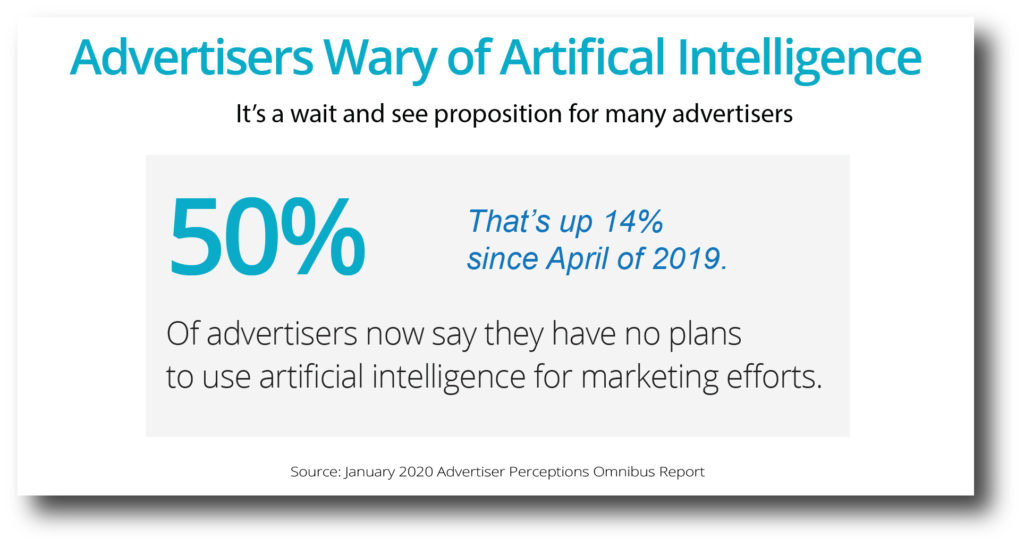Surprisingly, 50% of advertisers have no plans to use AI in marketing, according to a January study by Advertiser Perceptions. That’s 14% more AI avoiders than April 2019, when 36% of advertisers said they had no plans.

“For a decade now, advertisers have been inundated with new technology promising to help them do their jobs better, and many have simply grown weary,” said Frank Papsadore, EVP at Advertiser Perceptions. “With AI, most have yet to see practical demonstrations of effectiveness. Add to that uncertainty around privacy laws and the lack of guidelines or standard practices, and you have a recipe for hesitation.”
Advertisers that are using AI are prioritizing customer segmentation, but predict that within two years they will use the technology first and foremost to create and place ads.
How Marketers Use AI (in priority order)
2020
- Advanced customer segmentation
- Media selection and buying
- Smart customer engagement
- Scaling marketing efforts
- Reset objectives based on results
2022 Prediction
- Media selection and buying
- Creative ad development
- Advanced customer segmentation
- Smart customer engagement
- Augmented marketing analytics
Interestingly, AI lacks centralized authority within marketing organizations. Among advertising executives whose companies are using AI for marketing, only 27% say that they are in charge. For the rest, responsibility is spread out. For example, the Chief Technology Officer runs AI in 7% of companies, while the Chief Information Officer, a Director, or the Information Technology department each run AI in 6% of companies reporting.
Decentralized AI management is bringing more people into the media conversation, as 58% of managers controlling AI are now involved in media selection and buying.
“Big-budget brands like Nike, IKEA and Sephora are pioneering AI for marketing, but most advertisers don’t have their resources, so they’re focusing on more immediate marketing efforts,” said Papsadore. “For ad tech and the media, this presents an education opportunity. When advertisers have best practices and proof, they’ll feel more confident devoting resources to AI. The prize will go to the sellers that show advertisers simple, efficient ways to take advantage of AI technology.”
Advertiser Perceptions interviewed 300 advertisers in January 2019.

